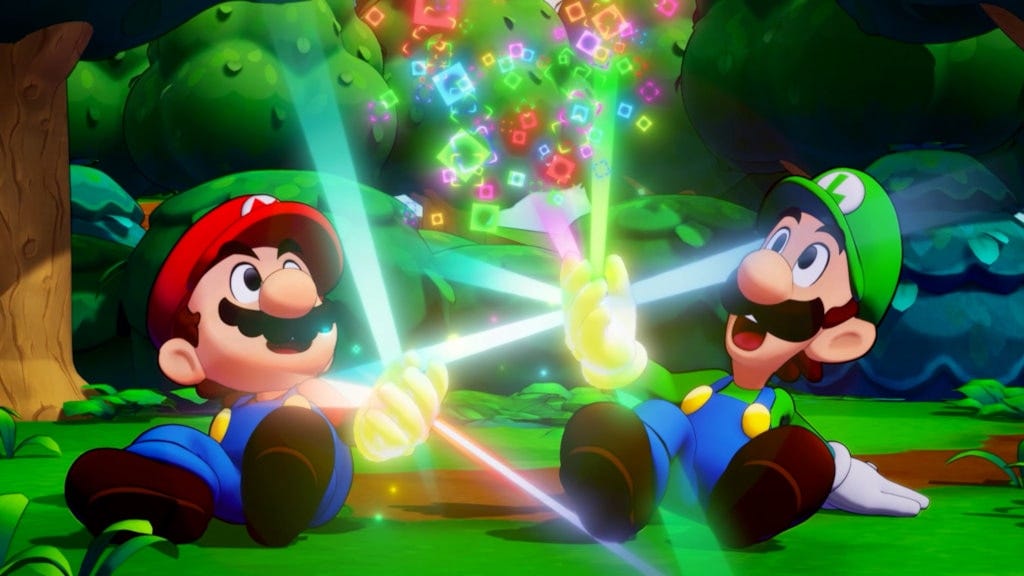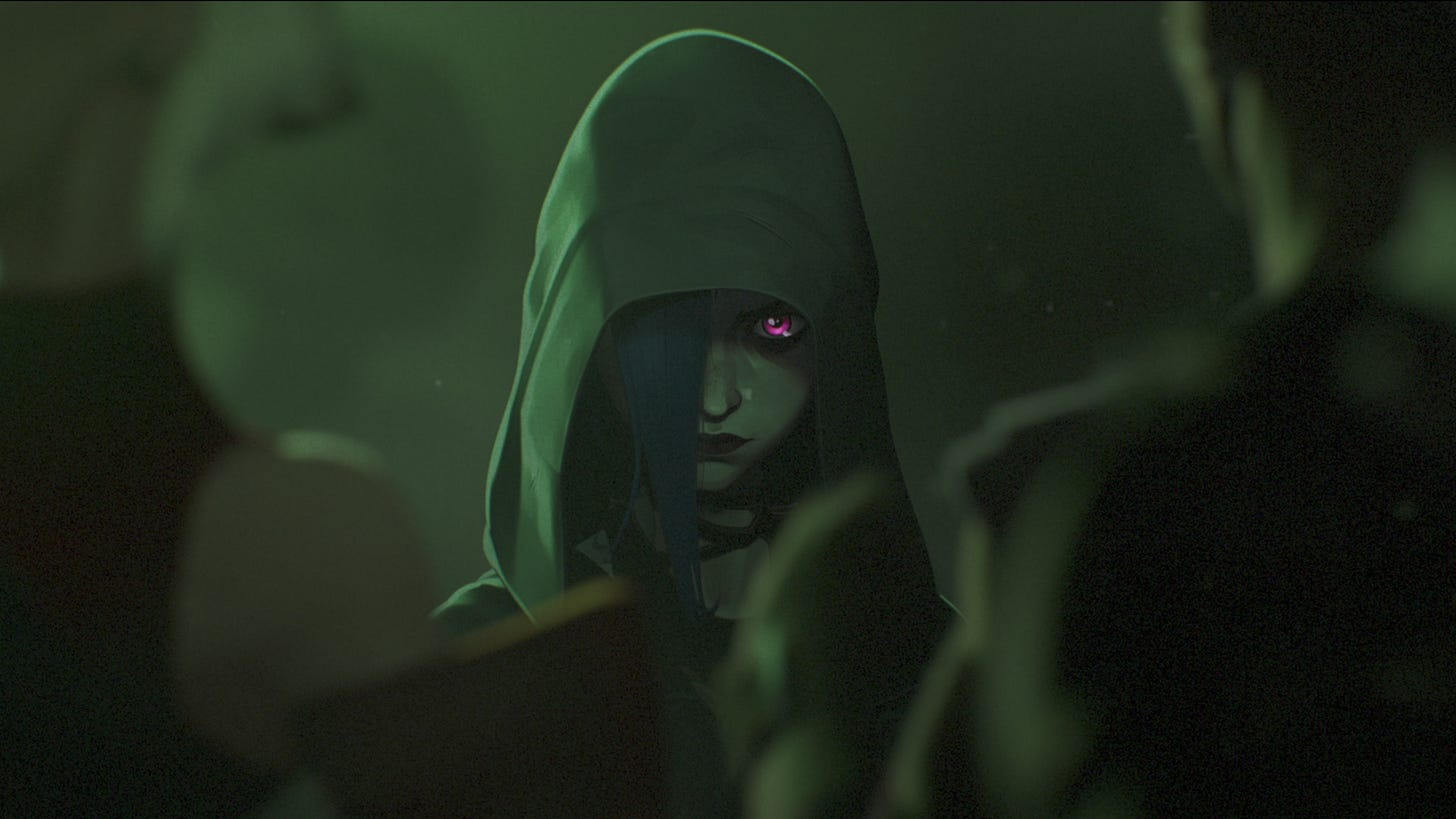Riot spends a quarter-billion on Arcane
Plus, Mario & Luigi: Brothership, and campaigning in Metaphor: ReFantazio as a real election ends
My usual beats of gaming, TV, and politics collided this week. Naturally, the latter occupied me most, as the country bolted rightward and re-elected a man who’s got 34 felony counts, one conviction, and two impeachments to his name. I produced analysis with NPR’s Ron Elving, where we broke down decisive Republican victories and Democratic miscalculations.
As all that went down, I chased the will of the people in Metaphor: ReFantazio, an acclaimed RPG by the makers of the Persona games that have both delighted and exhausted me. Metaphor, by contrast, isn’t set in contemporary Japan but rather a fantasy realm thrown into an electoral contest after the assassination of its king. It’s high concept, keenly written, and gorgeously evocative of 1960s fashion and Hieronymus Bosch.
Sensing an 80-hour commitment, I deferred the game to concentrate on Mario Party, an October roundup and Dragon Age: The Veilguard. Metaphor provides a telling comparison to the latter especially.
Where I’ve evangelized Veilguard’s sleek mechanics but bemoaned its unsophisticated story, Metaphor’s novel setting and stellar characters have carried me through its soporific combat. Personae 4 and 5 trained me well to conquer Metaphor’s turn-based tactics, but I found that its auto-battle strategies often surpass my own. These settings are smart enough to match attacks to enemy weaknesses — which I’ll only occasionally interrupt to use items or execute unconventional maneuvers. I’d gladly take a version of Metaphor that had half as many fights, as this bland smoothness made them the least interesting hours out of the two dozen I’ve recently put into the game.
Also on the RPG front, Nintendo released Mario & Luigi: Brothership. I liked the game’s bouncy animation but quickly tired of its action command combat a la Paper Mario and Super Mario RPG. I also couldn’t crib an (unofficial) co-op mode out of Brothership to play with my wife as we played Bayonetta Origins: Cereza and the Lost Demon. All in all, it’s not a game I could recommend beyond the young audience it clearly aims for.
I’ve buried the lede, but I’ll end with the last piece I produced this week — a Here & Now preview of the upcoming season of Arcane — the Netflix drama based on League of Legends:
“It’s one of the most exciting shows I've seen in years,” says Variety reporter Katcy Stephan. “Between the animation style, the voice acting and just the clear amount of care that was put into it.”
That attention to detail didn’t come cheaply. Parent company Riot Games spent approximately $250 million on Arcane across 18 episodes and two seasons. But while Riot has had to scale back its ambitions in scripted entertainment, Hollywood is trying to cash in on gaming properties — from box office bombs like Borderlands to critical hits like Amazon’s Fallout and HBO’s The Last Us.
“An adaptation of one of the best-selling games of all time sounds like it would be an easy slam dunk,” says Stephan. “But you have diehard fans who will pick apart every single change and others who say ‘I haven’t played the game, why should I watch this show?’”
For Stephan, the answer to that question is simple. “Arcane is one of the shining beacons of how to do a video game adaptation — it pays tribute to its source material while expanding on its world and making it accessible to a broader audience,” she says. “It’s just really good.”
I’ve been lucky enough to watch screeners of the show myself and largely agree. Stephan called it “animated Game of Thrones” — it’s not quite as grim or smart (at least, compared to GoT’s earlier seasons), but it’s at least as spectacular.







